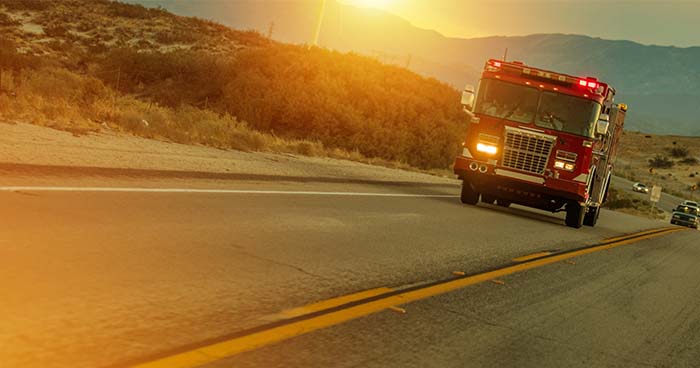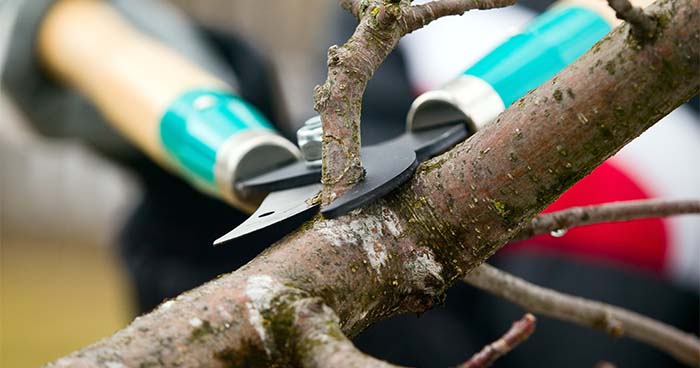When Is Fire Season in California? Let’s Answer Your Questions
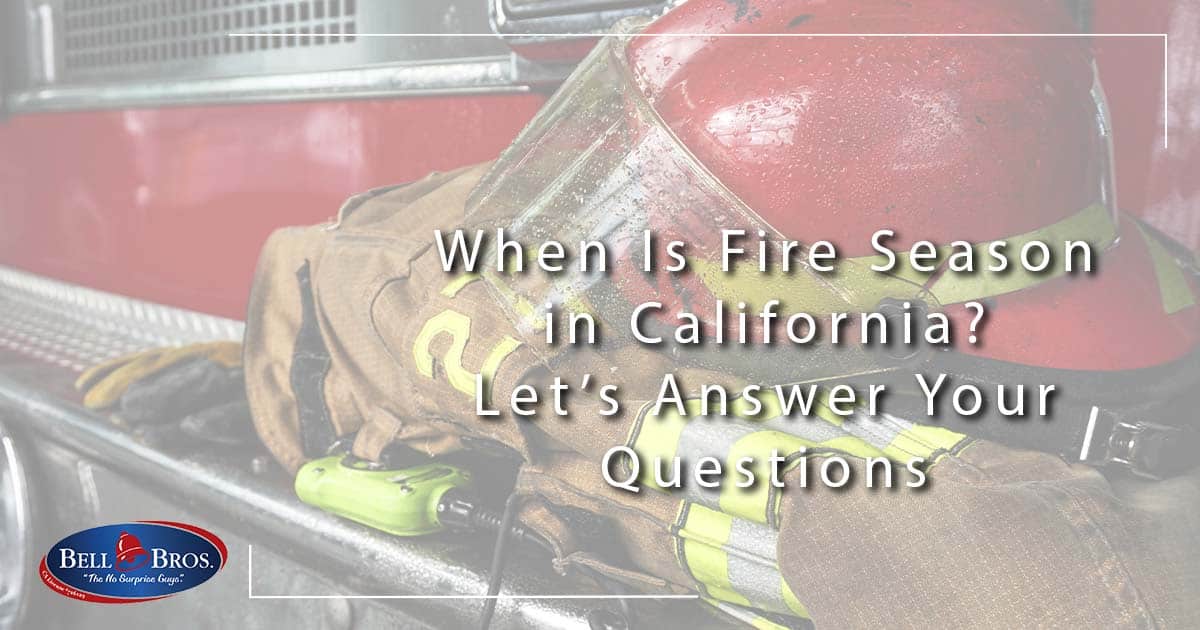
Californians are used to the risk of wildfires, it used to be mainly during the fire season months of June to October. Lately, it feels like fires can happen at any time in California, and residents need to be prepared for sudden wildfires and evacuation. We’re breaking down when exactly is fire season in California and how can you be prepared.
Prepare the Outside of Your Home
Move Flammables 30+ Feet Away from the Home
Flammable objects outside your home can increase the risk of your home catching on fire from wildfire embers. Move flammable objects, such as propane tanks, oil and gas cans, and lawnmowers, at least 30 feet away from your home. If there’s immediate wildfire activity, quickly move toys and furniture at least 30 feet away as well.
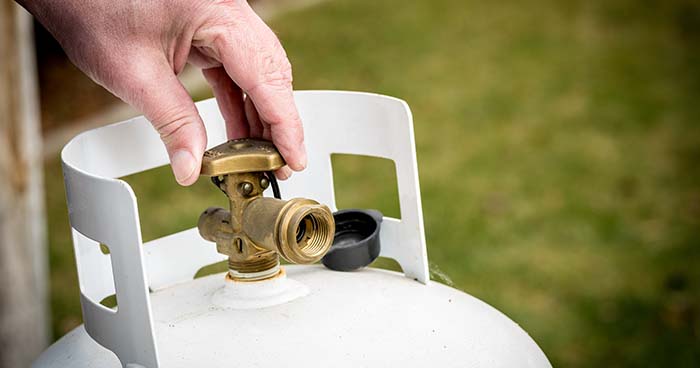
Clean Out the Gutters
A buildup of debris with dead leaves and pine needles in your gutters or on your roof can cause a fire in your home. Make sure to keep your gutters and roof clean and clear of debris in case of sudden wildfires.
Keep Flammable Vegetation at least 5 Feet Away from the Home
Some ornamental grasses and herbs like eucalyptus and rosemary are flammable and should never be planted or potted close to your home. Move these plants at least 5 feet away and replace them with fire-resistant plants for some privacy and curb appeal.
Trim Trees and Shrubs
Trim any trees and shrubs that have branches that overhang within 10 feet of your home, roof, or chimney. Make sure these larger plants are trimmed and maintained throughout the year to reduce your fire risk.
Keep Grass Short
Keep your grass short and well-watered all year round. If you’re trying to conserve water, always keep flammable debris or plants and objects at least 30 feet from your home. You may want to consider other landscaping options aside from dried grass, which is incredibly flammable.
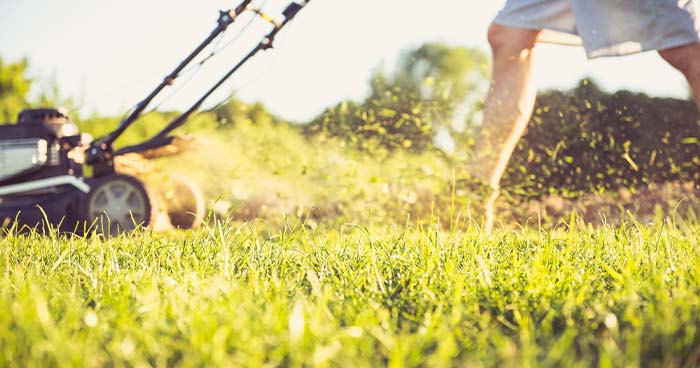
Prepare the Inside of Your Home
Close the Fireplace Flue
The fireplace flue is designed to allow smoke and pollutants to travel out of your home. During a wildfire, close the fireplace flue. This prevents smoke particles and embers from coming into your home through the chimney.
Mind Your Indoor Air Quality
Preserve your indoor air quality during a wildfire by avoiding anything that can cause pollution, including smoking cigarettes or cigars, lighting incense, burning candles, or cooking with certain spices and oils. If you live in a home where someone suffers from allergies, you’ll want to hold back on using aerosol beauty products and wearing perfume or cologne.

Seal and Weatherstrip the Windows
Windows with poor seals and weatherstripping can allow polluted air to enter your home. Seal all your windows and maintain the weatherstripping to ensure your windows are insulated properly if a wildfire occurs.
Consider a Portable Air Purifier
Portable air purifiers are excellent for maintaining indoor air quality. Invest in a portable air cleaner and a high-efficiency HVAC system filter to prepare for wildfires. For homes with pets, a portable air purifier will help clear your air throughout the entire year.
Regularly Check and Change Your Air Filter
Check and replace your air filter on a regular basis to ensure it’s in working order. Regular HVAC maintenance is important for keeping your home safe and clean, especially if you’re exposed to smoke and wildfires often.
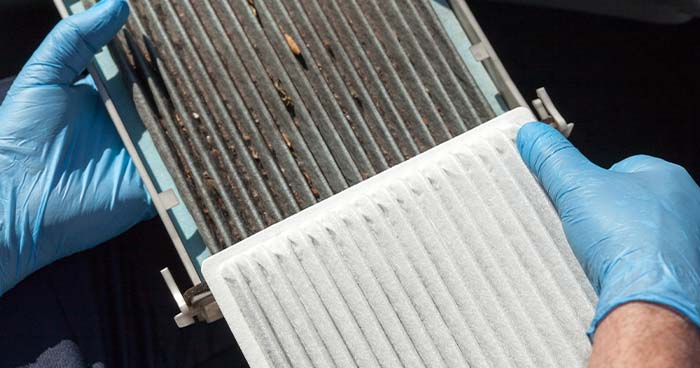
Consider an Air Filter with a High MERV Rating
Air filters are graded on a scale, the MERV scale. The higher number, the better the filter is at cleaning air. A MERV 13 or higher air filter is excellent for keeping out small particles, including the smoke particles that come from wildfires. Make sure the filter is appropriate for your system and properly installed.
Make Sure Your HVAC System Is Set to “Recirculate” or Close the Fresh Air Intake
If you have fresh air intake on your central HVAC system, be sure to close it when there’s wildfires in the area. You can turn on recirculate mode to keep your air clean and ventilate the space.
Stock Up on N95 Masks
N95 respirator masks are a major help during wildfires. Stock up on some N95 masks from local hardware stores or pharmacies and make sure you have them on hand for you and your whole family in an emergency.

Make a Family Plan
Sign Up for Local Emergency Alerts
During wildfires, or any other emergency, local authorities will release warnings, health and safety alerts, air quality reports, and more to keep citizens apprised of changes. Make sure you know where you can get this crucial information in advance and sign up for any alerts from weather apps, social media, and more.
Establish a “Safe Place”
Setting up a clean room in your home can be a lifesaver during a wildfire. Choose a room that has no fireplace and few windows and doors, such as a bedroom or walk-in closet, and keep emergency provisions and a portable air cleaner in there.
Make a “Go Bag”
If you must evacuate quickly, a “go bag” with some clothes, medications, and financial and personal records is important. You can simply grab it as you leave to save time in an emergency.
Don’t Forget Any Pets
Make an evacuation plan that includes your entire response to an emergency like a wildfire. Include your entire family in the evacuation plan, as well as any pets you have, to ensure you can be efficient in leaving your home.
How Long Does Fire Season in California Last?
Wildfire season in California used to be in the summer, but the typical season has been expanding and wildfires can happen at any time. Californians need to be prepared for the event of a wildfire throughout the year.
